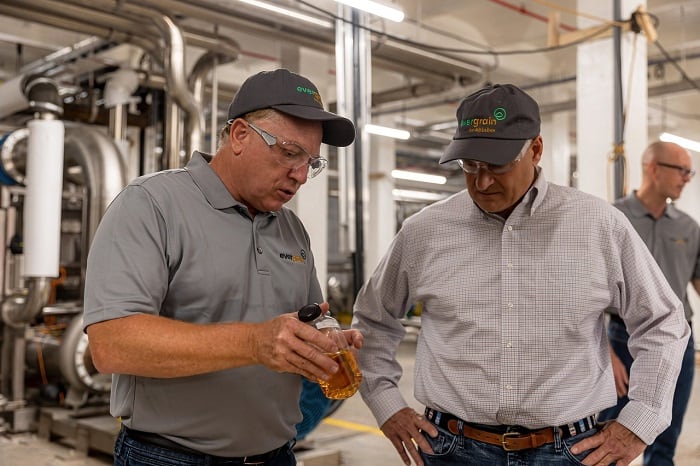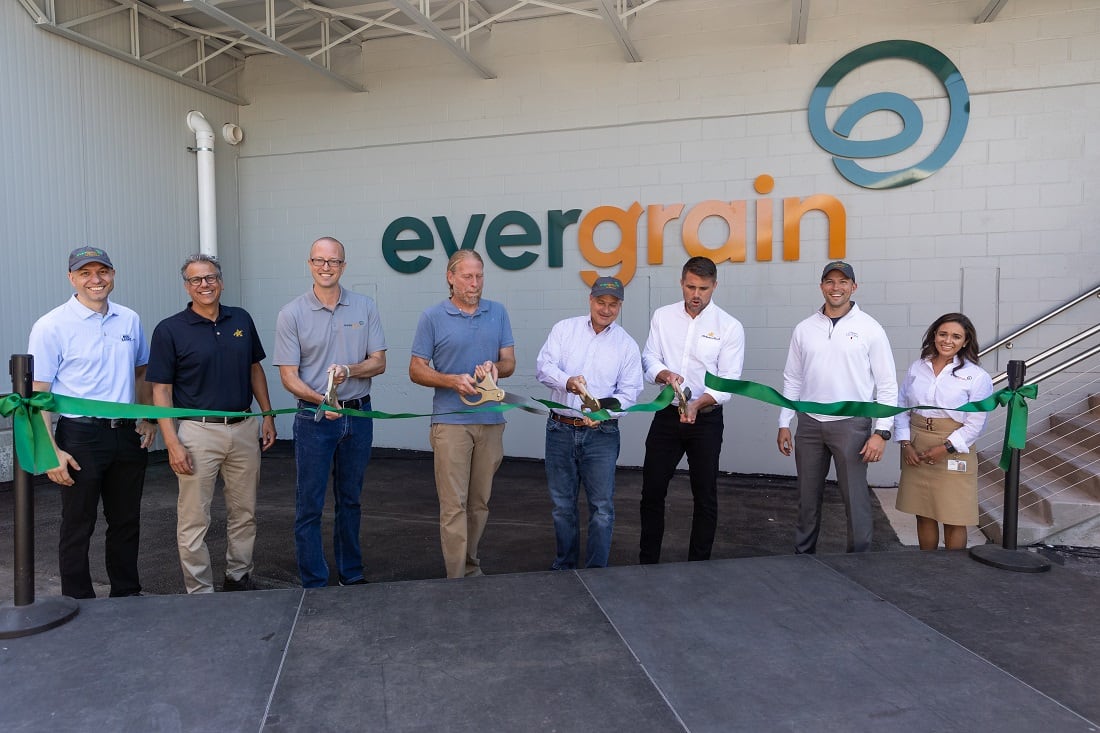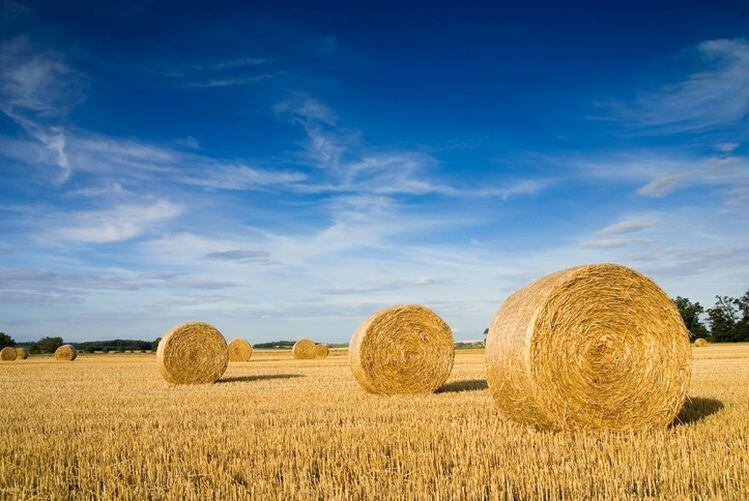Speaking to FoodNavigator-USA after the opening of its new production facility, Belt -- the former vice president of sustainability & innovation at AB InBev -- talked about the journey to get to this point of commercialization, "We’ve been working on this for quite a long time including an R&D effort that goes back ten years. Our large scale facility here in St. Louis really enables us to now have an impact on the world."
The new $100m facility is situated on AB InBev's St. Louis, Missouri campus in a refurbished building built in 1905, which had gone unused for the past 30 years. The proximity means EverGrain can have direct access to the thousands of tons of 'spent' grain (what's left over after the brewing process) that AB InBev produces, reducing the company's environmental impact, noted Belt.
"The fact that we could co-locate on a brewery really means that we’re not transporting grain long distances, so it literally comes from their brewery, and comes across a pipe into our facility," he said.
'The golden remainder'
So what makes spent brewer's grain, which only around 30% protein, so attractive as a value-added plant-based protein ingredient and referred to by EverGrain as 'saved' grain or more affectionately 'the golden remainder'?
According to Belt, once EverGrain is able to separate and filter the protein and fiber from one another what's left is a "super high protein isolate (i.e. EverPro)" that performs and behaves very similarly to dairy and whey protein.
"It’s over 90% soluble and has very low viscosity like water. What that means is you can put 35g in a protein shake, and it will behave very similarly to whey protein and milk protein concentrate," said Belt, who noted that the options for an ultra-high plant-based protein beverage are few and far between compared to the abundance of dairy-based protein drinks.
"When you look at the market today, you see things like Muscle Milk, Premier Protein and some other types of dairy and whey-based beverages, but there’s very, very few plant based options that contain more than 20g of protein. And one of the reasons for that is because viscosity and solubility are big challenges. What makes EverPro unique from a functionality perspective is that high solubility. "

EverPro also works well when used in combination with other plant-based proteins such as pea because of its complementary amino acid profile, noted Belt. When combined with pea protein, EverPro can achieve a PDCAAS of 1.0, according to EverGrain.
"It works very well in balancing out things like pea and soy protein from a taste perspective," added Belt.
Protein beverages, the immediate market opportunity
EverPro's natural taste profile -- slightly malty with hints of coffee or caramel -- is an ideal match for chocolate, vanilla, and caramel-flavored beverages, said Belt.
While the company has seen success and early promise in a variety of applications such as protein bars and snacks, the protein-based beverages category including protein powders and RTD protein shakes, presents an immediate and sizeable market opportunity, according to Belt.
"It works really well in fortifying a plant-based milk like an almond and oat milk, which somewhat lack that protein... What we’re concentrated on is making sure those plant-based milks have the right nutritional profile. I think there are some really exciting prospects behind barley milk," he said.
Barley is a relatively unknown ingredient, particularly for the US consumer
As for its other line of high-fiber nutritional powders (made from the other part of the brewer's spent grain), Belt explained how those particular ingredients are ideal for "every day baking products like breads, muffins, and snacks as well as pasta."
On the plant-based meat front, Belt shared that the company is working on a specific ingredient that meets the specific functional needs of the category.
AB InBev and EverGrain believe there's more to be discovered when it comes to the health benefits and application uses for brewer's spent grain, which is why the company recently set up its own global scientific advisory board of five scientists who will work with EverGrain's R&D team to research new uses for the company's portfolio of upcycled ingredients.
"Barley is a relatively unknown ingredient particularly for the US consumer," said Belt.
"We began a journey over a year ago to better understand the nutritional side of it. As we go through that journey, our scientific advisory board will help to steer us in the right direction. And we are uncovering some really interesting things that as we validate them will be released to not only our customers but the entire market."
Next chapter: 'The runway is long'
Aside from the functional benefits, Belt emphasized the core mission of EverGrain is to help bring about a more sustainable future for the food industry driven by the upcycling movement and elevating the uses for overlooked ingredients.
"The timing of us reaching scale couldn’t be better. People are turning to upcycling – companies and consumers – because they see a world of constraints, and we have to better utilize what nature has provided us today.
"There are many supply chains today where not everything is being utilized and brewer's spent grain is just one of those," said Belt who noted that EverGrain is a member of the Upcycled Foods Association which includes over 180 member companies working together to cut down food waste by 50% by 2030.
"We estimate the brewing industry produces 9 million tons of spent grain on an annual basis. Embedded in that we believe is 3 million tons of protein. AB InBev has 1.4 million metric tons [of spent grain], so the runway with ABI is long," added Belt.
*EverGrain will be exhibiting at the IFT Show in Chicago this summer at the Startup Pavilion at Booth #S4286-J




